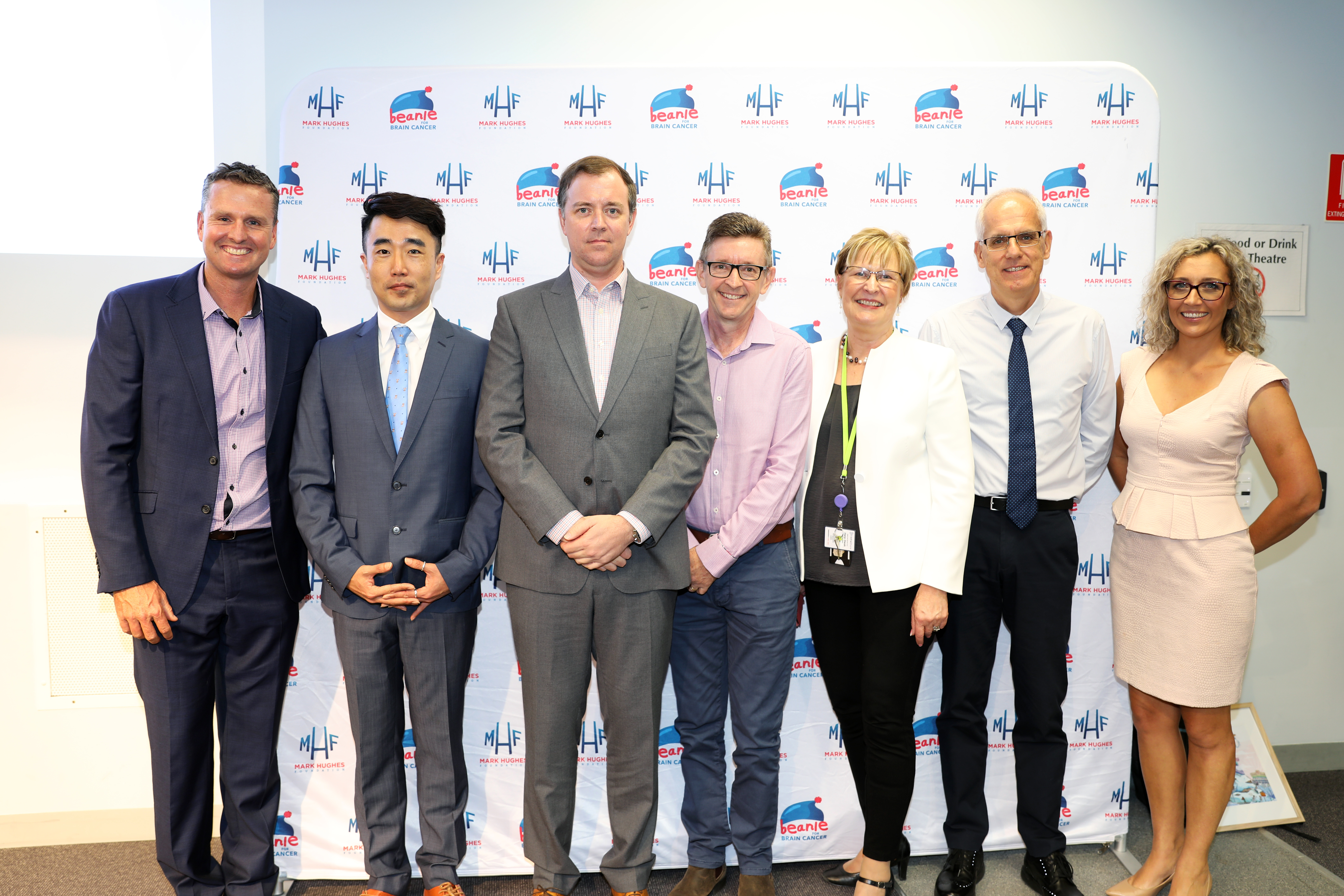Mark Hughes Foundation awards innovation in brain cancer
Five highly innovative brain cancer research projects have received over $725,000 in funding from the Mark Hughes Foundation (MHF) following a nationwide call-out and scientific review by experts in the field.
Recipients from Sydney- and Hunter-based institutes were revealed at NRL Headquarters yesterday, recognising rugby league’s generous support for the 2018 MHF Beanie Round.
MHF co-founder Mark Hughes says the inaugural Brain Cancer Innovation Project Grant Rounds are unique in that researchers have a relatively short timeframe to develop novel ideas in collaboration with other researchers.
“These projects will be conducted over one to two years, with the ultimate aim of solving the riddle of brain cancer,” he said. “We wanted to award funding to big thinkers who could knuckle down and tackle this insidious disease.”
MHF Scientific Committee strategies align with the National Brain Cancer Mission and aim to support research projects that, upon development, can then attract government funding, ensuring a complete translational pipeline with potential to improve patient outcomes.
Hunter Medical Research Institute (HMRI) Director Professor Tom Walley is excited by the potential of these new grants to allow researchers from around the country to work alongside the expertise and infrastructure at HMRI.
“HMRI and MHF have worked collaboratively to build research capacity in brain cancer,” Professor Walley said. “As an example, HMRI hosts genomics and genetic analysis – along with our cancer biobank and other specialist equipment – which we open to researchers locally, nationally and globally.”
Professor Hubert Hondermarck, from HMRI and the University of Newcastle, will receive almost $150,000 to explore a novel form of cancer research known as cancer neurobiology. He and his team will build on their work exploring the role of neurons in prostate, breast and thyroid cancers and transfer their knowledge to glioblastoma – a unique brain cancer.
Patient survival rates for glioblastoma have been stagnant, highlighting the need for new thinking.
“Recent evidence in other cancers, including from our laboratory, has demonstrated the crucial role played by neurons in stimulating cancer initiation and progression.” Professor Hondermarck said.
“The neurons can stimulate cancer cell growth and the propagation of cells. It’s vitally important to prevent this interaction between cancer cells and neurons to decrease the overall aggressiveness of glioblastoma.”

L-R: Mark Hughes, the Mark Hughes Foundation; Dr Julius Woongki Kim, Children’s Medical Research Institute; Dr Jonathan Goodwin, Calvary Mater Newcastle; Associate Professor Paul Tooney, UON and HMRI, Associate Professor Viive Howell, The Brain Cancer Group; Professor Hubert Hondermarck, UON and HMRI; and Kirralee Hughes, the Mark Hughes Foundation.
Related news
- Shanae’s passion for caring delivers her dream to work in health
- Food and nutrition degree serves Keren a rewarding career
- Kicking goals on and off the field, Joeli proves you can do it all
- Proving age is just a number, Arlyn wants to inspire more women in their 50s to pursue education
- Sky’s the limit for graduates on the Central Coast
The University of Newcastle acknowledges the traditional custodians of the lands within our footprint areas: Awabakal, Darkinjung, Biripai, Worimi, Wonnarua, and Eora Nations. We also pay respect to the wisdom of our Elders past and present.